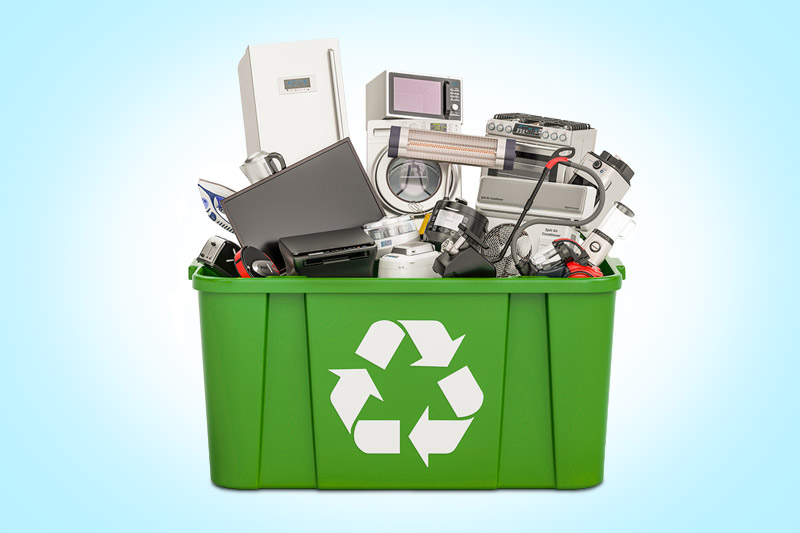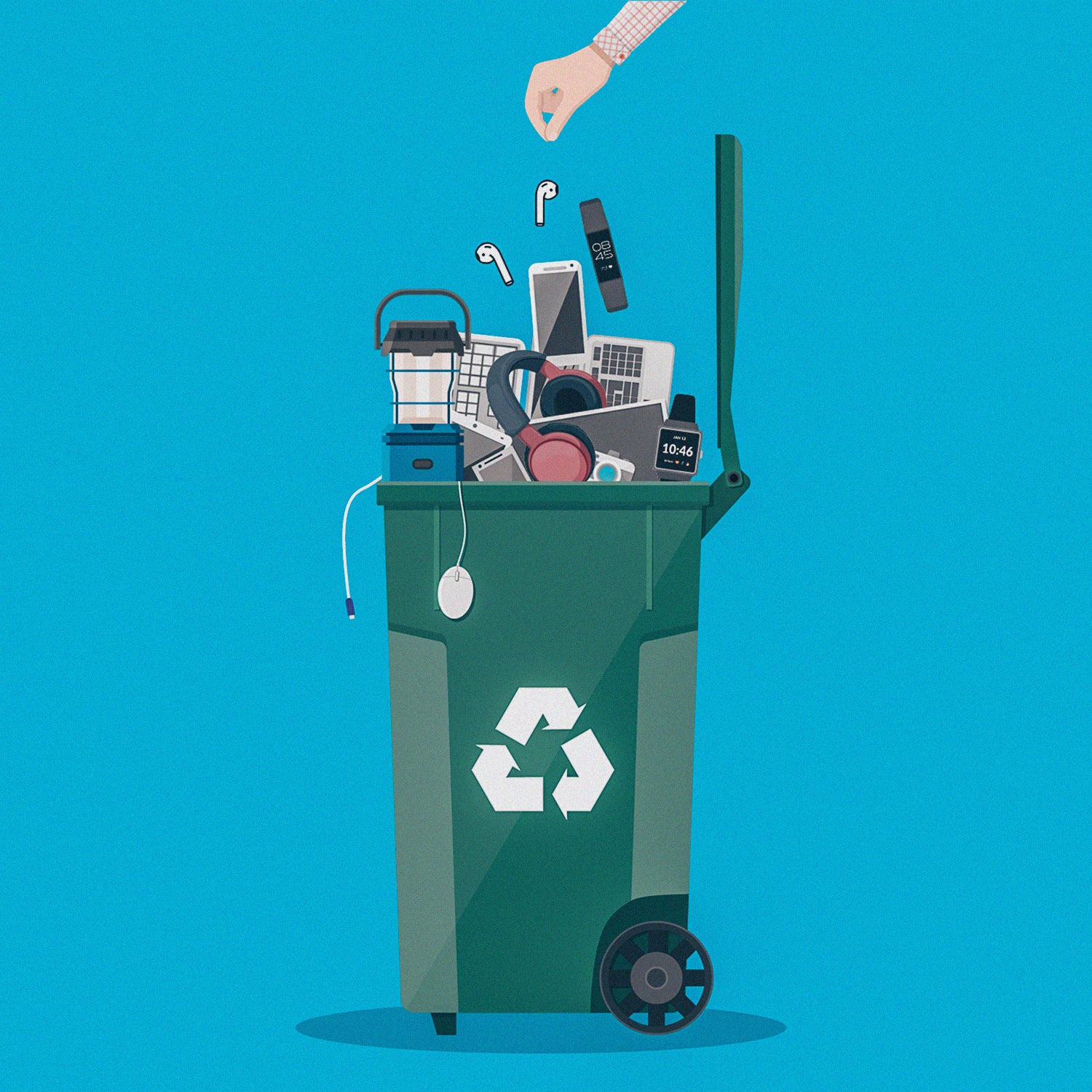Sustainable Electronics Disposal: Make Sure Conformity with R2 Certification
Wiki Article
Master the Demands of R2 Accreditation to Guarantee Sustainable Organization Practices
Guaranteeing sustainable business methods has actually ended up being a keystone of corporate obligation in today's international landscape. At the forefront of this activity is the R2 accreditation, an extensive criterion that establishes bench high for electronics recyclers and refurbishers. As companies aim to straighten with ecologically conscious practices, grasping the requirements of R2 certification is critical. By sticking to these criteria, business not only boost their environmental integrity however likewise acquire an one-upmanship in a progressively eco-conscious market. The roadmap to achieving R2 accreditation is multifaceted, including a deep understanding of key parts, meticulous actions towards compliance, and a dedication to ongoing maintenance. In a globe where sustainability is no longer a simple buzzword yet an organization critical, delving right into the complexities of R2 accreditation is a strategic move that can lead the way for long-term success and favorable environmental influence.Relevance of R2 Qualification
Accomplishing R2 Accreditation is vital for services aiming to demonstrate their dedication to accountable and sustainable digital waste monitoring methods. This accreditation, developed by SERI (Sustainable Electronic Devices Recycling International), sets the standard for liable recycling techniques in the electronic devices sector. By getting R2 Qualification, companies signal to their stakeholders that they abide by stringent ecological, health and wellness, and safety laws while managing digital waste.One of the key reasons R2 Certification is necessary is its focus on sustainability. With digital waste being a considerable global worry, companies need to showcase their commitment to minimizing the ecological impact of their operations. R2 Certification requires business to implement processes that make certain the appropriate handling, refurbishment, and recycling of digital waste, thus adding to the circular economic climate and lowering the build-up of e-waste in landfills.
Moreover, R2 Qualification enhances a business's reputation and credibility. In today's eco conscious market, companions and customers are increasingly looking to team up with businesses that prioritize sustainability. By achieving R2 Accreditation, business can distinguish themselves as leaders in accountable e-waste administration, acquiring a competitive edge and drawing in similar stakeholders.
Trick Elements of R2 Standards

Steps to Get R2 Certification
To qualify for R2 Accreditation, organizations have to meticulously demonstrate compliance with a set of strict requirements and standards. The procedure of getting R2 Accreditation entails numerous key steps.Following, companies require to evaluate their existing techniques and procedures to determine any voids that require to be resolved to fulfill the R2 Requirement. This may entail implementing new treatments, purchasing training programs, or making changes to existing procedures. As soon as any kind of deficiencies are treated, companies can continue to develop an extensive management system that lines up with the R2 needs.
Complying with the execution of the necessary changes, companies must undertake a third-party audit to confirm their compliance with the R2 Requirement (r2 certification). This audit is performed by an approved qualification body and includes a thorough evaluation of the organization's centers, treatments, and paperwork. Upon effective conclusion of the audit, companies can obtain their R2 Accreditation, showing their commitment to responsible and sustainable service methods
Benefits of R2 Conformity
Companies that stick to R2 conformity requirements can open a myriad of benefits in today's sustainable organization landscape. Among the primary benefits of R2 compliance is enhanced integrity and online reputation. By meeting the strenuous demands of the certification, firms can show their commitment to liable electronic waste management, which can infuse trust among consumers, companions, and stakeholders. Additionally, R2 conformity can bring about cost savings through improved efficiency in taking care of electronic waste. By carrying out appropriate recycling and refurbishment techniques, businesses can reduce garbage disposal expenses and potentially generate revenue from recovered materials. Additionally, R2 conformity advertises environmental sustainability by making sure that electronic waste is handled in an eco-friendly way, decreasing the effect on landfills and natural resources. This dedication to sustainability can additionally bring in environmentally mindful consumers and companions, offering an one-upmanship out there. On the whole, attaining R2 compliance not only helps services fulfill regulatory requirements yet likewise promotes a culture of environmental duty and operational excellence.Maintaining R2 Accreditation
Showing an ongoing dedication to liable digital waste management methods, companies have to concentrate on the meticulous procedure address of keeping R2 visit our website qualification. Maintaining R2 certification involves regular audits, internal reviews, and continual improvement initiatives to guarantee compliance with the strict demands stated by the Liable Recycling Practices (R2) criterion. Organizations has to remain watchful in monitoring their electronic waste management procedures, information security actions, and total environmental efficiency to maintain their R2 accreditation standing.Regular training and education for staff members are important to keep R2 qualification, as team members need to be well-informed about the most up to date ideal techniques and market criteria. Maintaining in-depth records and documentation of electronic waste recycling tasks, downstream suppliers, and inner processes is vital for showing compliance throughout audits.
Additionally, companies must actively involve with their supply chain companions and vendors to guarantee that all entities entailed in the electronic waste monitoring process comply with R2 standards. By fostering a society of transparency, liability, and continual renovation, businesses can efficiently keep their R2 accreditation and maintain their dedication to lasting business techniques.
Final Thought

Accomplishing R2 Qualification is crucial for businesses aiming to show their dedication to responsible and lasting electronic waste monitoring methods. By obtaining R2 Certification, companies signal to their stakeholders that they adhere to rigid ecological, wellness, and safety regulations while handling digital waste.
Upon successful completion of the audit, companies can obtain their R2 Qualification, demonstrating their dedication to accountable and lasting service practices.
Keeping R2 qualification includes regular audits, interior evaluations, and continuous enhancement initiatives to ensure compliance with the stringent demands set forth by the Responsible Recycling their explanation Practices (R2) criterion. By understanding the key components of R2 criteria, taking the required steps to acquire qualification, and gaining the advantages of R2 compliance, organizations can show their dedication to accountable electronic waste monitoring.
Report this wiki page